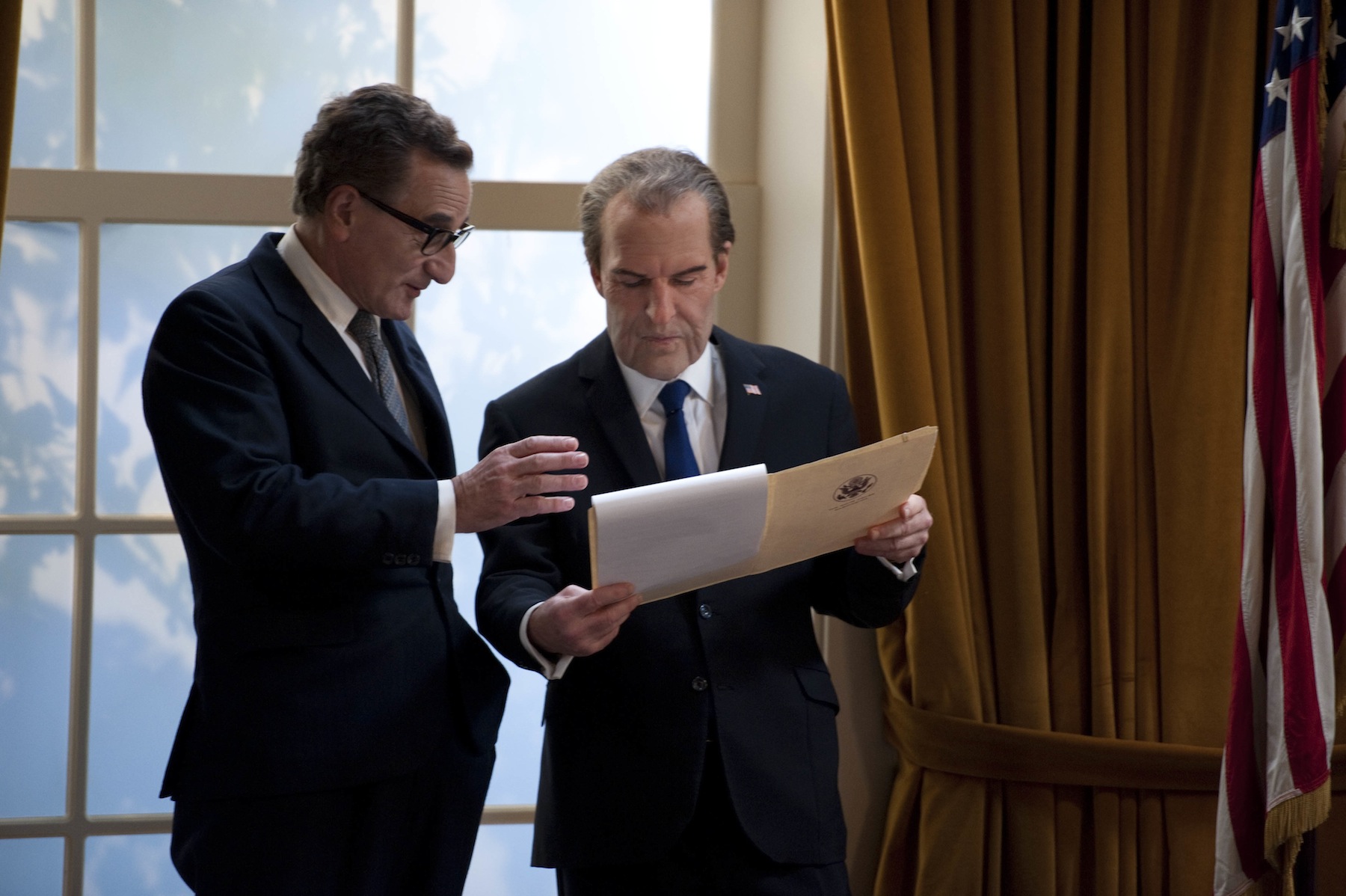
Most Americans think they have a pretty good idea of Richard Nixon: Checkers speech, Watergate, resignation.
Which is why Saturday Night Live and The Simpsons actor Harry Shearer decided to debut his Richard Nixon series, Nixon’s The One, in the U.K. The show, for which the scripts came from actual transcripts of Nixon’s Oval Office tapes, debuts for American audiences on YouTube on Tuesday — and people who think they know Nixon may be surprised, the actor says.
That’s because the Richard Nixon of Nixon’s The One is, in many ways, a comedian. Shearer and his co-writer Stanley Kutler, the historian who played a major role in getting those tapes released publicly, spent hundreds of hours listening to the tapes in search of “bizarre, funny, spooky, crazy, weird conversations” that weren’t necessarily about major world events but that shed a light on the President’s day-to-day character. Because many of the tapes had not been transcribed, as they were irrelevant to the Watergate investigation, they relied on logs of his Oval Office meetings to guess which tapes would contain conversations about the themes in which they were most interested; when they did listen, the tapes were often muffled and hard to decipher. And Shearer, who had played Nixon before, found that he had to do extra research in order to capture a relaxed version of the President, who was rarely seen in such a state publicly.
“One of the ways I try to figure out people is to figure out who are they imitating,” he says. “It struck me that the stance that I saw Nixon take when he was relaxed was imitative of the two most relaxed comedians of his era, Bob Hope and Jack Benny. He was sort of doing them, so I did him doing them.”
Nixon’s comedic side came out in particular in the scene prior to Nixon’s resignation, which was caught on camera rather than by Nixon’s audio recorder. In the minutes before he went on air, he joked with the camera crews, a choice that had long struck Shearer as odd, especially considering Nixon’s lack of affection for small talk. In the course of rehearsals, however, the actor came to believe that the joking was for a reason: “He thought, I believe, that these guys on the crew are going to go back home and talk to their families and say he wasn’t upset, he wasn’t angry, he wasn’t sad, he was nice, he even wished us Merry Christmas,” Shearer explains. “It was the start of the next campaign, to rehabilitate his reputation.”
See an excerpt from that segment of Nixon’s The One:
And, says Shearer, the whole arc of Nixon is a comedy — or rather a tragicomedy — in its deep irony: Nixon was a self-made man, and then he became a self-destroyed man. “There’s something quite elegant about that,” Shearer says. “He sort of wrote the perfect punchline for his own joke.”
Read more: 9 Things You Didn’t Know About Richard Nixon
More Must-Reads from TIME
- Why Trump’s Message Worked on Latino Men
- What Trump’s Win Could Mean for Housing
- The 100 Must-Read Books of 2024
- Sleep Doctors Share the 1 Tip That’s Changed Their Lives
- Column: Let’s Bring Back Romance
- What It’s Like to Have Long COVID As a Kid
- FX’s Say Nothing Is the Must-Watch Political Thriller of 2024
- Merle Bombardieri Is Helping People Make the Baby Decision
Write to Lily Rothman at lily.rothman@time.com